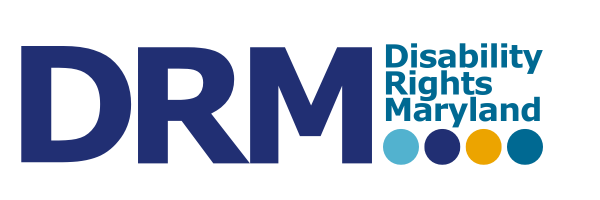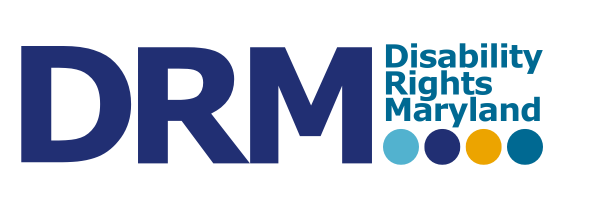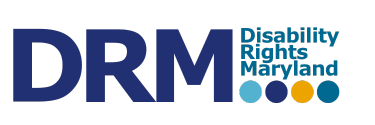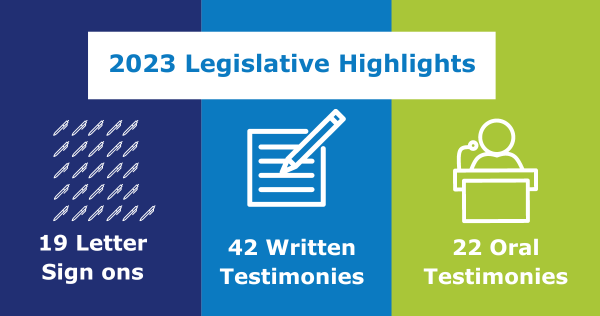Disability Rights Maryland (DRM) is pleased to report that the 2023 legislative session in Maryland was a productive one for Marylanders with disabilities. DRM worked with partner organizations, individual allies and legislators to advocate for bills that would protect and advance the rights of people with disabilities. During the session, DRM submitted written testimony for 42 bills, orally testified on the impact of 22 bills and joined other organizations in signing on to 19 letters of support or opposition. DRM is especially proud of the following seven bills which will become law this year in Maryland.
The Trans Health Equity Act
Senate Bill 460/House Bill 283 is a critical piece of legislation that ensures transgender individuals with Medicaid have access to comprehensive and culturally competent healthcare. This bill is important for people with disabilities because strikingly 39% of transgender individuals have one or more disabilities, compared to 15% of the general population. When pledging to sign the Act, Governor Wes Moore said, “We should not be asking any Marylander to validate their humanity. We should not be asking any Marylander to try to justify their humanness.” With the passage of the Trans Health Equity Act, transgender Marylanders with Medicaid will receive medically necessary, life-saving care. We applaud the efforts of the bill sponsors Senator Mary Washington of Baltimore City and County and Montgomery County Delegate Anne Kaiser. This Act is a significant step forward in promoting equity and access to healthcare for all.
Education: Recovery of Attorney’s Fees & Related Costs
House Bill 1237 provides critical support to parents and guardians of children with disabilities. Effective July 1, 2023 parents will be able to recover expert costs and fees in addition to attorney fees if they prevail in administrative or court actions brought against a local school system that fails to provide their child with the free, appropriate public education to which they are legally entitled. This enables families with low or moderate incomes, as well as those with more resources, to recover the costly expenses of successfully advocating for their children’s educational rights. Maryland will join Delaware and the District of Columbia as the only places in the country where parents who prevail in education cases are able to recoup their expert costs. We commend the Maryland General Assembly for taking this important action to safeguard the educational rights of children with disabilities and their families.
Transportation Equity Act
Senate Bill 0019/House Bill 009 makes equity a primary goal in Maryland’s transportation planning, and requires that people with disabilities are included and considered when the State develops its transportation plans. Maryland has a long history of enacting exclusionary transportation policy that disproportionately impacts people with disabilities, people from racial and ethnic minority groups and people with lower incomes. With the passage of this bill, the Maryland Department of Transit will need to conduct equity analyses, cost-benefit analyses and consult with certain communities before announcing or proposing any major service change or any reduction or cancellation of a certain capital expansion project. The bill goes into effect on June 1, 2023 and July 1, 2024. The Transportation Equity Act moves our state closer to providing fair and accessible transportation options for all individuals, which is essential for people’s daily lives and economic well-being.
Mental Health: Treatment Plans for Individuals in Facilities
Effective October 1, 2023, Senate Bill 8/House Bill 121 requires healthcare providers to develop and implement mental health treatment plans for individuals with mental health conditions when they receive care in facilities. This bill is crucial for people with disabilities as it recognizes the unique needs of each individual and aims to improve the quality of care and support provided to individuals with mental health conditions. The bill promotes the mental health and well-being of people with disabilities in Maryland.
Housing: Access to Counsel in Evictions
Senate Bill 756 provides $14 million every year from 2024 to 2027 to the Access to Council in Evictions (ACE) Special Fund. This money will be used to provide legal assistance to tenants facing eviction. Last year, the legislature passed a law that said tenants have the right to a lawyer in eviction cases. According to a report from the Maryland Access to Counsel in Evictions Taskforce in January 2023, landlords have always had an advantage because they usually have lawyers, while tenants rarely do. This funding is especially crucial for people with disabilities. They are more likely to face unemployment and poverty, and nationwide, about 4.1 million people with disabilities spend more than half of their income on rent. Having a lawyer in eviction cases can help prevent people with disabilities from being forced into institutions and can help them stay in the communities. The passage of this bill ensures the ground-breaking move to establish a right to counsel in evictions will be able to fulfill its promise to promote justice and fair housing for Marylanders with disabilities.
Home & Community Based Health Services for Children & Youth
Senate Bill 255/ House Bill 322 is a vital piece of legislation that expands home and community-based services for children and youth with disabilities by requiring the Maryland Department of Health to increase access to and provide reimbursement for intensive in-home services, case management and wraparound services. Effective October 1, 2023 the Act allows children to receive care in their home and community, rather than being forced to live in a medical facility. By expanding the availability of home and community-based services, this bill aims to improve access to care, increase independence, and enhance the overall quality of life for children and youth with complex needs. The passage of this bill promotes inclusion and equity for all children and youth with disabilities in Maryland.
Health: Collaborative Care Model Services Expansion
Senate Bill 101/House Bill 48 becomes law October 1, 2023. It is designed to improve the quality of behavioral health care delivered in primary care settings for Maryland Medicaid recipients by expanding access to and reimbursement for the proven Collaborative Care Model. The collaborative care model involves a team-based approach to healthcare, with medical professionals working together to provide comprehensive, coordinated care that addresses both physical and mental health needs. Care coordination and management are essential to improving outcomes, avoiding crises and ensuring that children and adults with behavioral health conditions are served in their communities whenever possible, avoiding out-of-home placements that traumatize and harm families. The passage of this bill is a meaningful step forward in promoting equitable and accessible healthcare for all Maryland residents.
—
Thank you!
DRM would like to thank our donors whose support enable DRM to advocate for people with disabilities throughout the 2023 legislative session. If you are passionate about advancing the rights of people with disabilities in Maryland and able to give, please consider making a generous contribution to support our work.
GIVE TODAY





